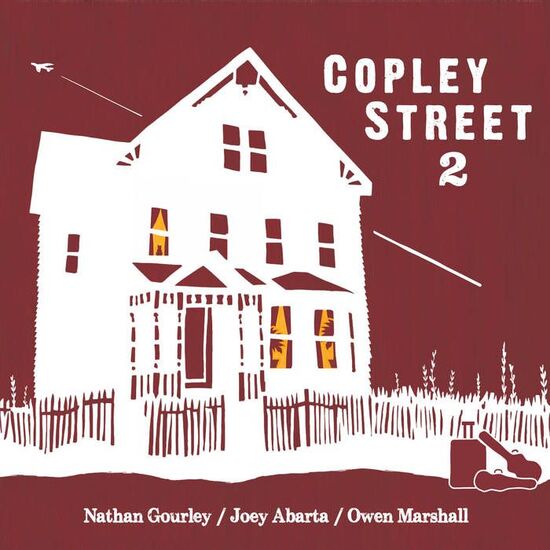Film Review / By Michael Gray
Barry Ward and Simone Kirby in a scene from “Jimmy’s Hall.”
SONY PICTURES CLASSICS
Did you hear the one about the Irishman who was deported from his own country? It’s no laughing matter. Those of us who have lived for any length of time on the westerly side of the Atlantic Ocean will likely know someone or other who had a difference of opinion with the authorities here past the expiration date of his visa, and got dispatched out of the jurisdiction, never to return.
Now imagine this happening to an Irishman in his own country. And in his own home county, on his own family’s farm. This was the fate that befell a Leitrim man named Jimmy Gralton in 1933, the only Irish citizen, in the history of the state, to have been deported from Ireland.
And the charges? There were none - not, at least, in any formal sense. Nor a trial, fair or otherwise. Jimmy was perceived as a menace to society, on account of activities in his home parish that had the support of many in his locality, but were not sanctioned by the church. And on the basis that he had assumed American citizenship during an earlier sojourn in New York, he was deemed an undesirable alien by Eamon de Valera’s recently-elected Fianna Fáil government.
He escaped the initial attempt at his mother’s cottage to arrest and deport him, and went on the run. He kept one step ahead of the law for six months, but was then apprehended, taken to Cobh, and put on a transatlantic steamer bound for New York, where he would live out the remainder of his years.
Gralton was born in a crowded cottage on a small farm of poor Leitrim land in the townland of Effrinagh, not far from Carrick-on-Shannon. He left home as a teenager to join the Royal Navy, and travelled round the world for years before landing in New York at the age of 21. His political consciousness was forged here in the heated atmosphere of the workers’ unions’ struggles against the horrendous factory conditions endured by immigrant laborers in the city. He returned to Ireland twice, the first time in 1921 to fight in the war of independence, which left him on the wrong side of the Treaty, and the second time, in 1932, after de Valera’s anti-Treaty party came to power, to settle permanently (or so he believed) on the family acres, and take care of his aged mother.
Jimmy brought back new ideas from New York. To those who like them, new ideas are called progressive, to those who don’t, they are disparaged as new-fangled. For the local priests, Jimmy’s ideas fell into the latter category, and, worse still, were perceived as sowing the seeds of godless communism. He had been a union activist in New York, and on his initial return he built a hall on his family farm as a venue to hold dances, sports events, and readings to educate a rural populace hungry for fresh ideas. To do this without the imprimatur of the Catholic church was deemed an affront to its authority and set Jimmy on a collision course with the local priests and bishops, and ultimately, de Valera’s government. This clash is the subject of a veteran British director Ken Loach’s new film, “Jimmy’s Hall,” a drama set in rural Leitrim at the time of Jimmy’s second return, and shot in that county in Drumsna, not far from Jimmy’s own townland.
The film is a natural progression from Loach’s previous examination of Irish history, the 2006 Cannes Palme D’Or winner “The Wind That Shakes The Barley.” That film asked the question: now that we have an independent Ireland, what kind of Ireland do we want it to be? “Jimmy’s Hall” addresses the conflicts that follow the evolving nature of independence a decade later, when the different factions that forged the new nation vie for pole position at the levers of power. Jimmy Gralton (Barry Ward) was a leftist supporter of James Connolly (his hall was officially named Pearse-Connolly Hall) and his beliefs set him at odds with the opposing forces in this new power play - the big landowners who controlled Leitrim’s agriculture industry, and the new minority government of Fianna Fáil, in lockstep with a church authority that was about to consolidate its place at the apex of Ireland’s power structure, with the 1932 Eucharistic Congress.
Add to this potent mix the fact that Jimmy’s music nights at the hall were not just earnest céilí seisiúiní. His years in New York had given him a taste, not just for leftist theory, but for the devil’s music. He was soon spinning jazz 78s on an imported American gramophone, and even teaching a few soft-shoe steps to the thrilled villagers, digging himself into deeper trouble with the parish priest Fr. Sheridan (a malevolent Jim Norton in Loach’s film).
Gralton’s story, adapted for the screen by regular Loach collaborator Paul Laverty from Donal O’Kelly’s play of the same name, has all of the components to make a great drama, and reveal some hidden truths about how we got to be the way we are. Loach even has, by his own modest standards, a lavish budget of €6 million, used to excellent aesthetic effect to show some of Ireland’s less celebrated scenery, in all its lush summer glory. But the film is failed by its cast – too many amateur actors deflate what was in reality a fiery debate about the rights of the landless and the bookless to adequate housing and an education of their choosing. In what should be a pivotal scene, Jimmy attends a meeting to protest the eviction of a family with five children, cast to the roadside when they are unable to pay the rent for their cottage after their crops failed. The motley assortment in attendance of putative IRA men, leftist activists, and concerned villagers mumble and fluff their lines like they hadn’t rehearsed at all. The priest is a despicable cartoon villain who only shows some nuance to his character when he allows, at the conclusion, that the man he had hounded mercilessly out of the country was worthy of some respect for the strength of his convictions. And the actress playing Jimmy’s stoic mother (Aileen Henry), in a small but emotionally significant role, comes across like she is reading her lines off the tablecloth in her cottage. The accents in the film are all over the place - rural Leitrim seems to have a surfeit of tweed-clad, flat-capped Dubliners expounding leftist dialogue in a pre-urban Ireland that seldom saw jackeens venture past the end of their city’s suburban tramlines.
Loach disingenuously soft-pedals his subject’s politics and thus does the real man a disservice – Gralton is agreeably played by Barry Ward as an affable, laddish character, scruffily handsome and self-deprecating, intent only on providing a few novel social options for his fun-starved neighbors in the titular hall. The real-life Jimmy was a leading member of the Workers’ Revolutionary Group in Leitrim, forerunners of the Irish Communist Party, and a force to be reckoned with, delivering firebrand rhetoric in his hall along with the music, poetry and literature events. At a volatile time when Stalin ruled the atheist Soviet Union with a ruthless fist and Hitler’s Nazionalsozialist thugs were about to seize power in Germany, Gralton presented a small but very real threat to the authority of those aligned with the church, the big landowners and the ever-fractious IRA (who were implicated in burning down Jimmy’s Hall on Christmas Eve of 1932, but organized a protest against his expulsion eight months later). Watch the film (currently screening at 11 local cinemas in New York), for the scenery, but for better results, look for Michael Carolan’s fascinating documentary “Deported: the Gralton Story” on Youtube.
Or better yet, seek out Gralton’s grave in Woodlawn Cemetery, and pay your respects to a neglected idealist from the annals of Irish history who deserved better, in life, and on film.









